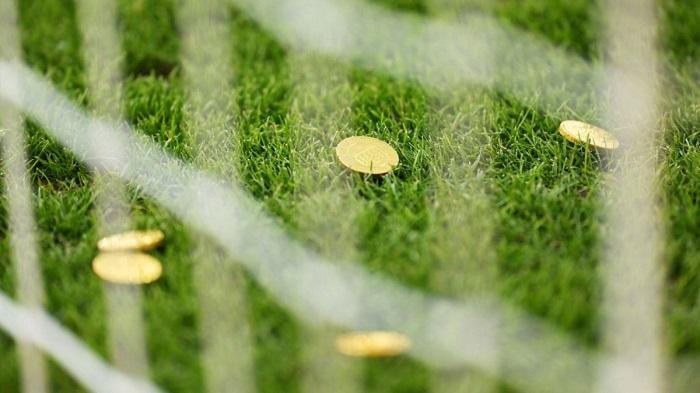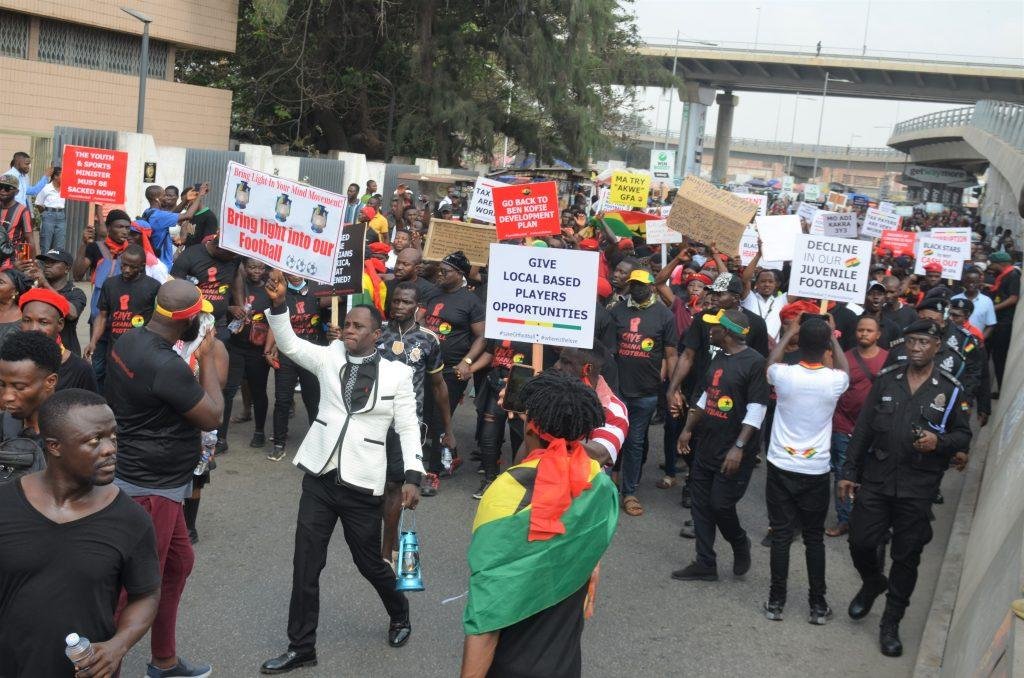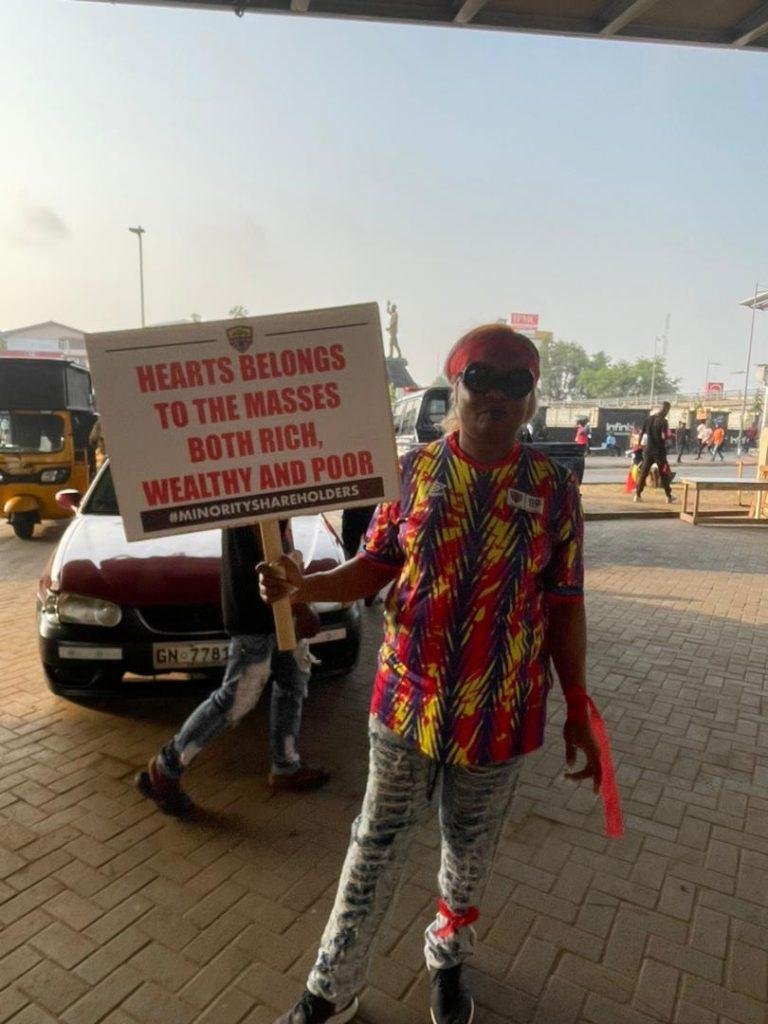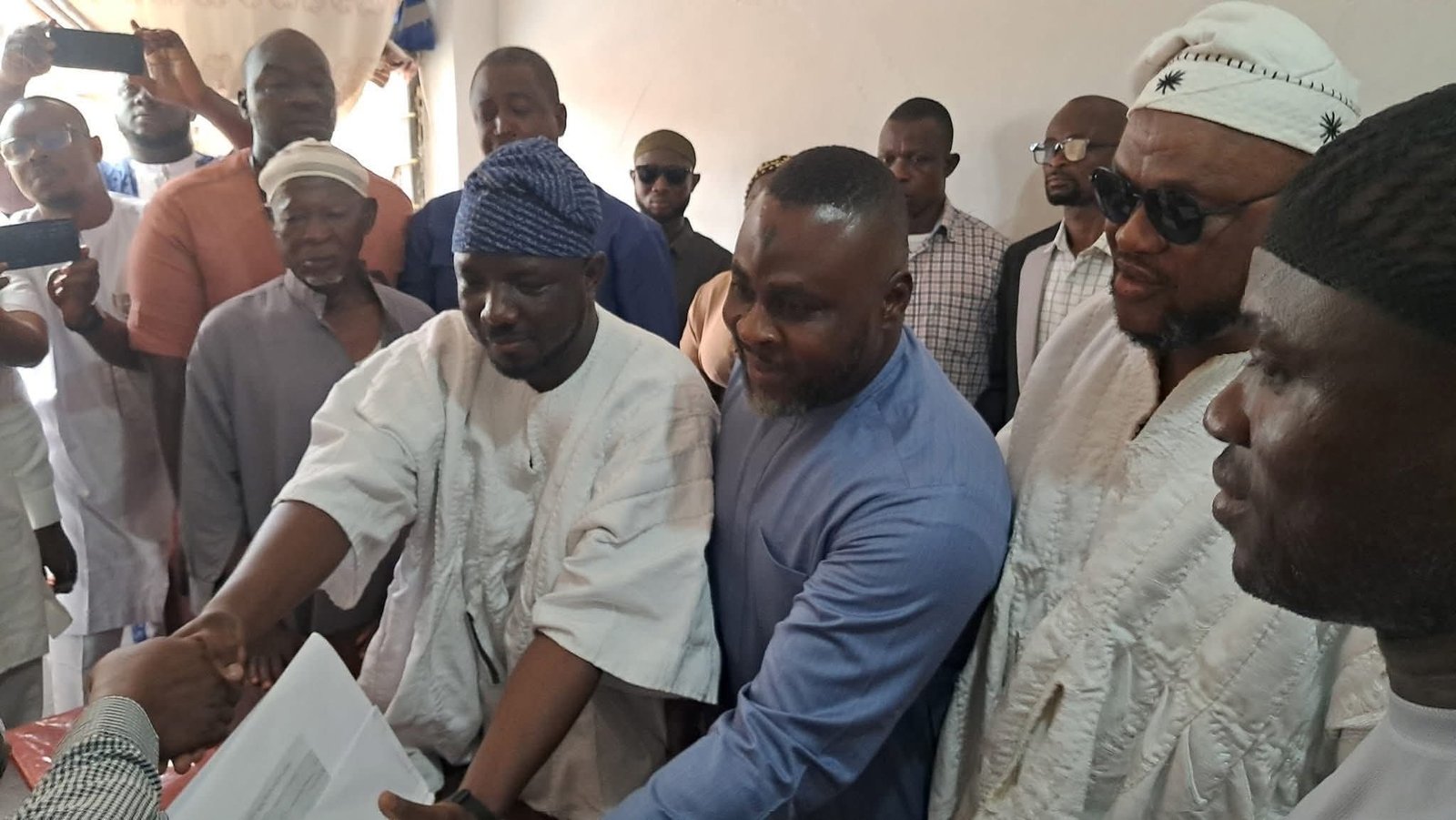Hot!
Football’s season of demonstrations

Chocolate coins thrown by fans at the Bundesliga match between Heidenheim and Wolfsburg
The state of Ghana football has become an enormous worry for Ghanaians lately.
And it has reached a point that required drastic measures, damned the consequences, to keep the nation’s passion afloat.
The situation has led to a historic fans’ demonstration in the capital spearheaded by sports journalists who feel the state’s intervention was required to halt the direction the Kurt Okraku Ghana Football Association (GFA) administration is driving the game.

The involvement of these seasoned journalists in the football rescue operation makes the development even more exciting due to the fact that this kind of exercises have usually been seen as a preserve of the fans.
So, for them to abandon their microphones in their respective studios to march under the scorching Accra sun tells a story of how disturbing the situation has become.
But trying to understand exactly what their actions were about, it is very important to decipher the factors under consideration in arriving on the subject of the ‘state of Ghana football.’
As expressed by an ex-player John Paintsil on a television programme recently, Ghana football should encompass the game’s administration from the very grassroots to the very top, the Black Stars which performance appears to have been the cause of the actions.
That, in itself, is another problem football lovers must try to seek redress to due to the over concentration on the cash cow (Black Stars) to the detriment of all others.
The quality of the game from the lower divisions all the way to the Ghana Premier League (GPL) has been nothing to write home about. Matches are very boring with clubs using crude tactics to win matches.
Referees are not left out of the chaos as they churn out unimpressive performances that raise a lot of question marks over their competence.
The fans also contribute their quota in a negative way to make it murkier with their violent conducts at venues, attacking opposing teams and fans as well as referees.
All of these contribute to taking the shine off our so-called beautiful game which should have attracted the attention of the conveners.
But, as usual, it is the rapid decline of the Stars that is giving almost everyone sleepless nights and warranting such actions.
I read in the last few minutes before this piece that a second demonstration earmarked for Kumasi in the Ashanti region was called off due to scheduled engagement with some of the major stakeholders in the line of restoring Ghana’s lost glory in football.
It would have been bigger than the Accra edition due to the passion fans in the region have for the game.
A 15-point petition called among other things a political will and support of the legislature to fashion out a policy to deliberately develop the game.
That touches on the game’s administration in Ghana, from the Juvenile Leagues, the Division Two League, Division One League, Ghana Premier League, and the National football teams, particularly the Black Stars.
It also highlighted the development of a national football policy, disbandment of the management committee, structural reforms, government investing massively in school sports, technical development, infrastructure, grass-root football, the establishment of national training centres for all national teams’ coaches and their contracts.
These are very genuine concerns but the question on the lips of many vexed in football would be the kind of interpretation or spin to be put on the invitation of government and its legislature in this matter.
This has happened in other jurisdiction and has been described as political interference and led to bans and formation of Normalisation Committees. This should be fresh in our memories.
One may then ask about the specific role of the government, knowing the consequences of taking such actions.
I feel the onus lies on the FA to do exactly what the masses are calling for without necessarily government intervening. As football people, they understand the concerns of the masses and are well placed to fix them. What they need now is a complete change of attitude.
But call the week a season of demonstrations and one would not be far from right.
Far away in German, fans launched a series of protests, independent of the clubs, aimed at reversing or at least reconsidering a law that allowed the influx of capital for football broadcasting.
The protests were carried out by supporters of different teams in Germany and caused matches to be disrupted.
The interesting thing about their demonstration was the manner it was carried out.
While Ghanaian fans carried several placards with captivating inscriptions and walked for a few hours, the Germans attended their games and interrupted play anytime a goal was scored by throwing tennis balls and chocolate coins onto the pitch, delaying the starts and restarts of games and forcing referees to abandon matches.
During a second division match between Hamburg and Hanover, banners with a target superimposed over the face of Hanover’s president were displayed. The match was interrupted for 30 minutes when tennis balls and other objects were thrown onto the pitch.
Similar protests delayed the start of the Bundesliga match between Bayer Leverkusen and Bayern Munich on February 10.
The weekend’s game between Bochum and Bayern Munich was also disrupted several times by the fans action.
Two days fans of Accra Hearts of Oak also hit the streets in the typical Ghana demonstration fashion, also wielding placards with several inscriptions and calling for reforms.
Maybe as the attention of the German and Ghana FAs are drawn to their respective issues, fans or demonstrators of the two countries can also share a few ideas about holding demonstrations. That may help them know the best way to go about it – walking for hours or causing match disruption.
By Andrew Nortey
Hot!
Prof Alidu Seidu files nomination for Tamale Central seat

The newly elected parliamentary candidate of the National Democratic Congress (NDC) for Tamale Central, Prof Alidu Seidu, has submitted his nomination forms to the Electoral Commission.
As of 10:00 a.m. today, he was the only person who had filed to contest the seat.
Nomination of candidates will close at the end of the day.
Associate Professor and Head of the Political Science Department at the University of Ghana Legon, Prof. Alidu Seidu won the National Democratic Congress (NDC) parliamentary primaries in the Tamale Central constituency with a landslide victory.
The elections, supervised by the party’s Elections and IT Directorate in the Northern Region, saw Prof. Seidu poll 840 votes out of the total valid ballots cast.
His closest contender, Lawyer Hanan Gundadow Abdul-Rahaman, secured 536 votes.
The other aspirants could not make significant gains, with Dr. Seidu Fiter obtaining 44 votes, Aliu Abdul-Hamid 23 votes, and the rest recording fewer than 10 votes each.
In all, 1,500 ballots were cast, with 6 ballots rejected and 7 spoilt ballots recorded.
The results were signed and declared by Dr. Arnold Mashud Abukari, NDC Northern Regional Director of Elections and IT.
The National Democratic Congress (NDC) held parliamentary primaries in Tamale Central to choose a candidate for the upcoming by-election following the death of the sitting Member of Parliament, Dr. Ibrahim Murtala Mohammed. Dr. Mohammed, who also served as Minister for Environment, Science, Technology and Innovation, tragically died in a military helicopter crash in the Adansi Akrofuom District on August 6, 2025, alongside seven others.
His passing left the Tamale Central seat vacant, as required by Ghana’s 1992 Constitution.
The Electoral Commission has scheduled the by-election for September 30, 2025. While the NDC moved quickly to open nominations and vet aspirants, the New Patriotic Party (NPP) announced it would not contest the seat, citing the need to respect the somber circumstances and promote national unity.
By: Jacob Aggrey
Hot!
Ghana to locally refine its gold starting October 2025 – Sammy Gyamfi

The Chief Executive Officer of the Ghana Gold Board, Sammy Gyamfi, has announced that plans are far advanced for the establishment of a state-owned gold refinery in the country.
Speaking at the 2025 Minerals and Mining Convention, Mr Gyamfi said the refinery will process locally mined gold into bullion instead of exporting it in its raw state.
According to him, it is unacceptable that Ghana, despite being a leading gold producer in Africa, continues to export raw gold known as dore.
He explained that the Gold Board, working with the Bank of Ghana and local refineries, will from October 2025 begin refining gold locally.
He also disclosed that an ultramodern assay laboratory will be built to ensure international standards in testing gold quality.
Mr Gyamfi noted that the refinery will be wholly state-owned and will help Ghana move away from raw mineral exports to value addition.
This, he said, will boost foreign exchange earnings, create jobs, and position Ghana as a hub for gold refining and jewellery production in Africa.
The CEO stressed that the project forms part of government’s strategy to ensure the country benefits fully from its natural resources and to transform the mining sector into a driver of economic growth.
By: Jacob Aggrey






